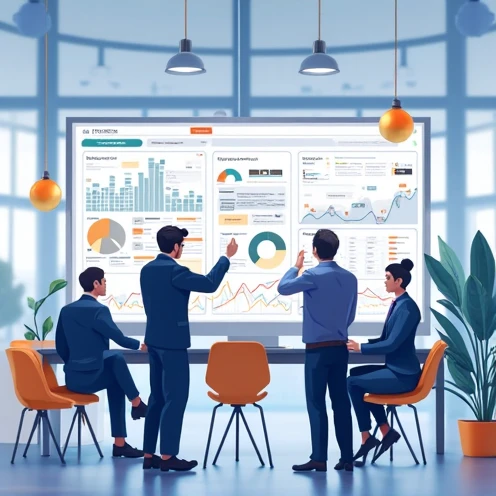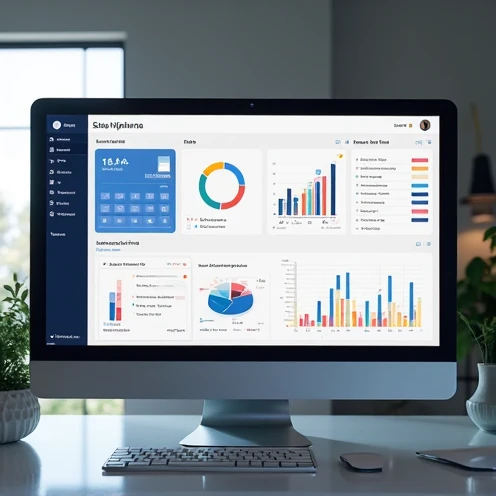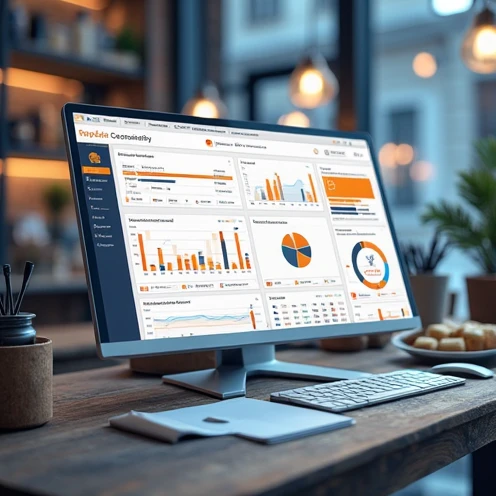The Role of CRM in Small Business Growth
A CRM, or Customer Relationship Management system, is more than a digital Rolodex. It’s a centralized hub for storing customer information, tracking interactions, and streamlining sales pipelines. For small businesses, where every customer counts and every minute matters, a CRM becomes an invaluable asset. Unlike large corporations, small businesses often lack the resources to manage complex systems. That’s why choosing a simple CRM for small business is crucial. It helps you stay organized, improves communication, and strengthens customer relationships—all without the steep learning curve.
Why a Simple CRM Beats Complicated Systems
Iklan Google AdSense
Small businesses don’t need bells and whistles—they need tools that work, fast. A simple CRM minimizes confusion and reduces onboarding time. Instead of wasting hours figuring out unnecessary features, your team can focus on building relationships and closing deals.
Plus, simple CRMs are often more affordable and scalable. You can start with core functions and upgrade later as your business grows. This gives you flexibility without the pressure of enterprise-level costs.
Iklan Google AdSense
Essential Features to Look For
Before choosing a system, focus on the essentials. A simple CRM for small business should offer contact management, deal tracking, activity logging, task reminders, and integrations with tools like email and calendar.
Also, look for mobile access. A cloud-based CRM that works across devices ensures you’re never tied to your desk. Whether you’re attending a meeting or working remotely, you’ll always have the data you need.
Best Simple CRM Tools for Small Business Owners
Some platforms are specifically designed with simplicity in mind. HubSpot CRM is an excellent free option that offers all the basics plus a modern interface. Zoho CRM and Freshsales are also great choices with user-friendly dashboards and built-in automation.
These tools require little technical knowledge. Most come with onboarding tutorials and customer support, so even first-time users can dive right in without friction.
How CRM Improves Customer Relationships
A CRM doesn’t just help you manage contacts—it helps you understand your customers better. It stores notes, call logs, purchase history, and preferences. This means you can tailor every interaction, making your customer feel heard and valued.
Personalization leads to loyalty. When customers feel recognized, they’re more likely to return. That’s how a simple CRM becomes a powerful driver of customer satisfaction and long-term business success.
CRM Automation for Time-Saving Wins
Automation is no longer reserved for big companies. Many simple CRMs now include features like automated emails, follow-up tasks, and lead scoring. These time-saving tools allow you to focus on closing deals rather than chasing them.
Imagine sending a thank-you note automatically after every sale, or setting up reminders to follow up after a demo. These small touches, when automated, make a huge difference in your workflow and customer experience.
Mistakes to Avoid When Using a CRM
One common mistake is underutilizing the tool. Businesses often sign up for a CRM but don’t use it consistently. To avoid this, commit to daily updates and regular reviews of your data.
Another mistake is overloading your CRM with useless data. Keep things clean and relevant. A well-maintained CRM is easier to use and provides better insights.
How CRM Enhances Your Sales Funnel
Sales funnels can be confusing without proper tracking. A CRM gives visibility into every stage—from lead to closed deal. You’ll know exactly where your prospects are and what actions to take next.
This visibility enables better forecasting and smarter decision-making. With just a glance, you can identify stuck leads, prioritize hot prospects, and focus your energy where it counts.
Integrating CRM With Your Business Tools
A simple CRM for small business should integrate seamlessly with your existing tools. Whether it’s Gmail, Outlook, Slack, or QuickBooks, integration streamlines your workflow.
Syncing these tools allows for real-time updates. For example, email threads can be linked to contact records, and calendar events can automatically trigger follow-ups. This creates a smoother, more connected operation.
Signs It’s Time to Start Using a CRM
If you’re struggling to keep track of leads, missing follow-ups, or losing sales because of disorganization, it’s time to implement a CRM. Even if you’re a solo entrepreneur, having one system to manage all your customer data makes a noticeable impact.
Don’t wait until things get chaotic. Proactively adopting a simple CRM keeps your business running smoothly and positions you for scalable growth.
Your First 30 Days With a CRM: What to Expect
Once you’ve chosen your CRM, start by adding your contacts and deals. Set up your pipelines and automate simple tasks. In the first week, focus on daily use so it becomes second nature.
By the end of the first month, you’ll see noticeable improvements in response time, task management, and customer follow-ups. And that’s just the beginning. Over time, your CRM becomes a vital part of how your business operates.
CRM Is the Backbone of Modern Small Business
A simple CRM for small business isn’t just a tool—it’s a business partner. It helps you stay focused, serve your customers better, and grow with confidence.
Even if you’re just starting out, don’t overlook the power of a good CRM. Simple, efficient, and scalable—it’s exactly what your business needs to stay competitive in a digital-first world.
Iklan Bersponsor Google






